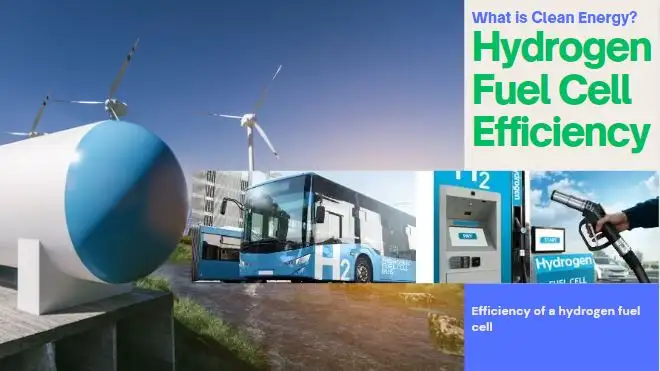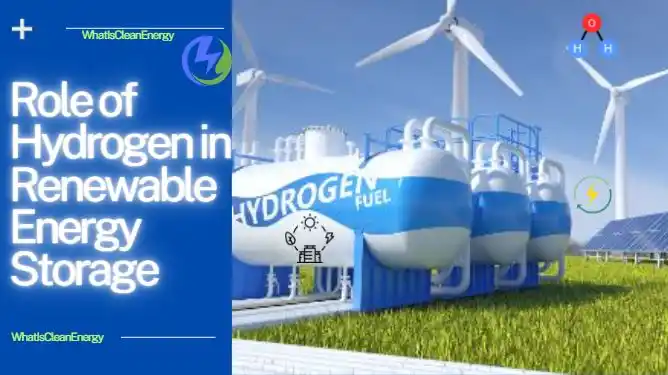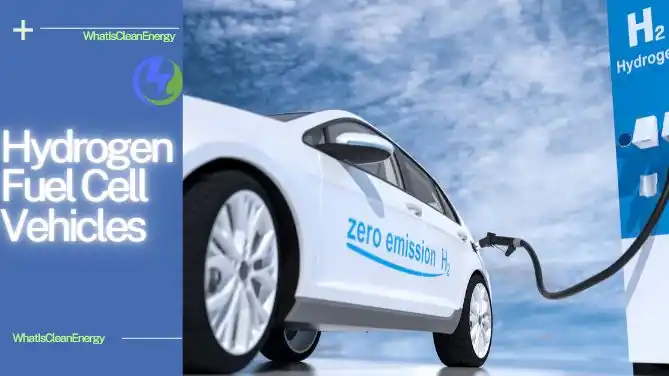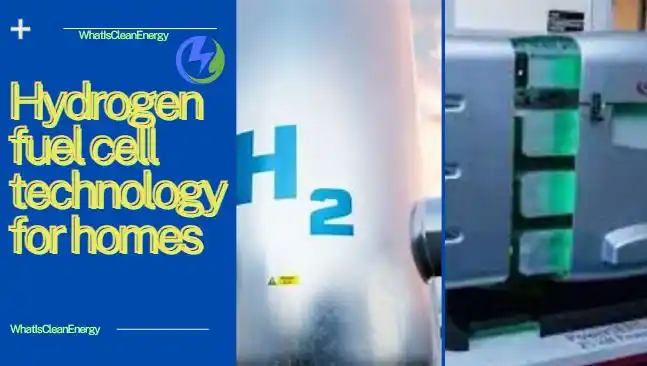Hydrogen fuel cells are a promising technology that can help us move towards a cleaner and more sustainable future. Welcome to the exploration of hydrogen fuel cell efficiency. In this discussion, we’ll delve into hydrogen fuel cells, uncovering the mechanisms behind their efficiency and exploring the complex processes that make them a promising contender in the world of clean energy. In this article, we have explored the efficiency of hydrogen fuel cells and how they work.
What is a hydrogen fuel cell?

Hydrogen fuel cells are devices that convert the chemical energy of hydrogen into electricity. They are highly efficient and produce no harmful emissions. Various applications, such as transportation, stationary power generation, and portable power, are utilizing hydrogen fuel cells.
Understanding Hydrogen Fuel Cell Efficiency

The efficiency of a hydrogen fuel cell is the ratio of the electrical energy produced to the chemical energy of the hydrogen fuel consumed. The fuel cell efficiency depends on several factors, including the type of fuel cell, the operating conditions, and the quality of the fuel.
The efficiency of a hydrogen fuel cell can range from 40% to 60%. Every unit of energy fed into a fuel cell converts between 40% and 60% of that energy into electrical energy. The remaining portion dissipates as heat.
Hydrogen Fuel Cell Efficiency: How Hydrogen Fuel Cells Work
A hydrogen fuel cell consists of an anode, a cathode, and an electrolyte. Hydrogen is fed into the anode, and oxygen is fed into the cathode. The hydrogen molecules are split into protons and electrons at the anode. The protons pass through the electrolyte to the cathode, while the electrons flow through an external circuit, producing an electrical current. At the cathode, the protons and electrons combine with oxygen to form water.
Advantages of Hydrogen Fuel Cells
Hydrogen fuel cells offer several advantages as a clean energy source:
Key Advantages of Hydrogen Fuel Cells
- Zero Emissions: The only by-products are water and heat, making them environmentally friendly.
- High Efficiency: Hydrogen fuel cells can achieve efficiencies of around 60%, compared to 30-40% for gasoline engines.
- Renewable Energy Potential: Hydrogen can be produced from water using renewable energy sources like solar and wind.
- Fast Refueling: Unlike batteries, hydrogen fuel cells can be refueled in minutes, making them ideal for transportation.
- Versatile Applications: Used in vehicles, power generation, and industrial processes.
- Quiet Operation: Fuel cells operate silently unlike combustion engines, reducing noise pollution.
Disadvantages of hydrogen fuel cells
Hydrogen fuel cells have several drawbacks that impact their widespread adoption:
Key Disadvantages of Hydrogen Fuel Cells
- High Production Costs: Producing hydrogen, especially green hydrogen, is expensive compared to fossil fuels.
- Storage Challenges: Hydrogen has a low energy density by volume, requiring high-pressure tanks or cryogenic storage.
- Infrastructure Limitations: Hydrogen fueling stations are less widespread than gasoline stations or electric charging points.
- Energy Loss in Production: Converting electricity into hydrogen and back into electricity results in efficiency losses.
- Safety Concerns: Hydrogen is highly flammable and requires careful handling and storage.
Despite these challenges, hydrogen fuel cells remain a promising clean energy solution.
Comparison of hydrogen fuel cells and other energy sources
| Comparison Criteria | Hydrogen Fuel Cells | Batteries (Lithium-Ion) | Fossil Fuels | Solar Power | Gasoline Engines |
|---|---|---|---|---|---|
| Efficiency | ~60% | ~90% | ~30-40% | ~15-20% | ~30-40% |
| Environmental Impact | Only emits water & heat | No emissions | High carbon emissions | No emissions | Produces CO₂ & pollutants |
| Fuel Availability | Hydrogen can be produced | Requires charging stations | Widely available | Sun-dependent | Widely available |
| Only emit water & heat | Fast (~5 min) | Slow (~30 min – hours) | Fast (~minutes) | Daylight-dependent | Fast (~minutes) |
| Infrastructure | Limited fueling stations | Expanding charging network | Well-developed | Requires panels | Extensive network |
| Cost of Production | High for green hydrogen | Decreasing costs | Low, but fluctuating | Decreasing costs | Variable costs |
| Safety Concerns | Flammable, requires handling | Low risk | Pollution, fire hazard | Weather-dependent | Fire hazard, emissions |
Final Insights on Hydrogen Fuel Cell Efficiency
Hydrogen fuel cells are a game-changing technology driving us toward a cleaner, more sustainable future. With efficiency levels ranging from 40% to 60%, they outperform traditional fossil fuel systems while producing zero harmful emissions. Their versatility extends across industries, powering transportation, stationary energy systems, and portable devices. As advancements continue, hydrogen fuel cells are set to play a crucial role in the global shift toward renewable energy.
Frequently Asked Questions (FAQs)
What is hydrogen used for?
Industries utilize hydrogen as a chemical raw material (or feedstock) and as a fuel capable of producing electricity or heat, either through its use in a fuel cell or by combustion (for example, in a turbine).
What are the pros and cons of hydrogen fuel cells?
Hydrogen fuel cells are more efficient than many other energy sources, including many green energy solutions. This fuel efficiency allows for the production of more energy per pound of fuel. For example, a conventional combustion-based power plant generates electricity at 33-35% efficiency compared to up to 65% for hydrogen fuel cells
What is the efficiency of a hydrogen fuel cell?
The efficiency of a hydrogen fuel cell can range from 40% to 60%. A fuel cell converts between 40% and 60% of the energy input into electrical energy for every unit of energy supplied. The remaining energy is dissipated as heat.
Is hydrogen fuel cell technology sustainable?
It depends on the source of hydrogen—green hydrogen (from renewable energy) is sustainable, while hydrogen from fossil fuels has a carbon footprint.
Does hydrogen production impact efficiency?
Yes, producing hydrogen via electrolysis retains only 60-70% of input energy, and additional losses occur during compression and transport.
How does hydrogen compare to battery-electric systems?
Battery-electric systems retain 80-90% of input energy, making them more efficient than hydrogen fuel cells.





